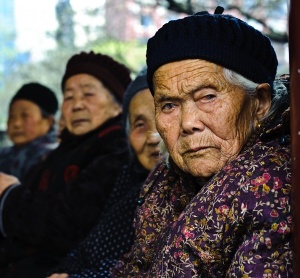-
Advocacy Theme
-
Tags
- Abortion
- Adoption
- Caregiving
- CEDAW
- Disability
- Domestic Violence
- Domestic Workers
- Harassment
- Healthcare
- Housing
- International/Regional Work
- Maintenance
- Media
- Migrant Spouses
- Migrant Workers
- Muslim Law
- National budget
- Parental Leave
- Parenthood
- Polygamy
- Population
- Race and religion
- Sexual Violence
- Sexuality Education
- Single Parents
- Social Support
- Sterilisation
- Women's Charter
Unmet Social Needs of Elderly Women
March 18th, 2015 | News, Older People and Caregiving, Poverty and Inequality, Views
 On 5 March, AWARE held a roundtable to discuss the results of a study examining the ‘unmet needs of elderly women’ in Singapore. The study found that elderly women in Singapore face a range of problems such as financial issues, health problems and emotional challenges.
On 5 March, AWARE held a roundtable to discuss the results of a study examining the ‘unmet needs of elderly women’ in Singapore. The study found that elderly women in Singapore face a range of problems such as financial issues, health problems and emotional challenges.
The study was conducted under the aegis of the Lien Centre for Social Innovation, which is conducting a series of studies on the unmet social needs of vulnerable populations in Singapore. This includes migrant workers, single parents, disabled persons, and elderly persons. For this study, 100 elderly persons were interviewed, of which 64 were women.
Presenter Balambigai Balakrishnan, a research associate at Lien Centre, discussed key findings and a few representative cases.
Key findings from the study:
- Education: 80% of female respondents had only a secondary education or less, with older respondents having less education. This was attributed to discriminatory attitudes, with one respondent saying that her father had only sent her brothers to school.
- Household arrangements of elderly persons are gendered: elderly men tended to live alone or live with their spouses, with fewer living with their children. By contrast, women often lived with their children. During these interviews, it emerged that this was so as men were often less able to contribute to household responsibilities, such as providing childcare.
- Financial issues: many of the female respondents worked in low-skilled, low-income jobs e.g. as cleaners. While many respondents received money from their children, often supplementary income was required. Some of the respondents could not pay their bills, and others often subsisted on canned goods.
- Health issues: Health, and paying for healthcare, was a recurrent concern amongst respondents. In addition, poor health limited female respondents’ ability to work.
- Emotional problems: Due to financial and healthcare concerns, some women felt that they were a burden on their children who supported them financially. Others were estranged from their children and felt unable to rely on them for support.
During the discussion, Teo You Yenn, a sociologist and AWARE board member, mentioned her research on younger families in poverty – some scenarios described during the presentation were the future for many of the women she worked with.
Balam explained that elderly women in comparatively better situations tended to have better health, which made them more able to work. In fact, if they had ever worked, this tended to translate into better outcomes. However, employment histories are themselves related to education levels. “This shows that outcomes really depend on the luck of the draw,” an audience member commented. Teo You Yenn agreed, “Our social welfare system does not protect adequately against risk.”
The participants also briefly discussed solutions. Two major themes emerged: first, elderly women’s emotional and mental well-being should be attended to, as the depth of chronic mental and emotional stresses apparent in the respondents were striking. Ultimately, better social support could not be limited to financial support alone, although that is undoubtedly important. Second, advocacy groups and voluntary welfare organisations should develop a clear message about what interventions are required, to companies seeking to engage the underprivileged, in order to avoid misconceived corporate social responsibility efforts.



